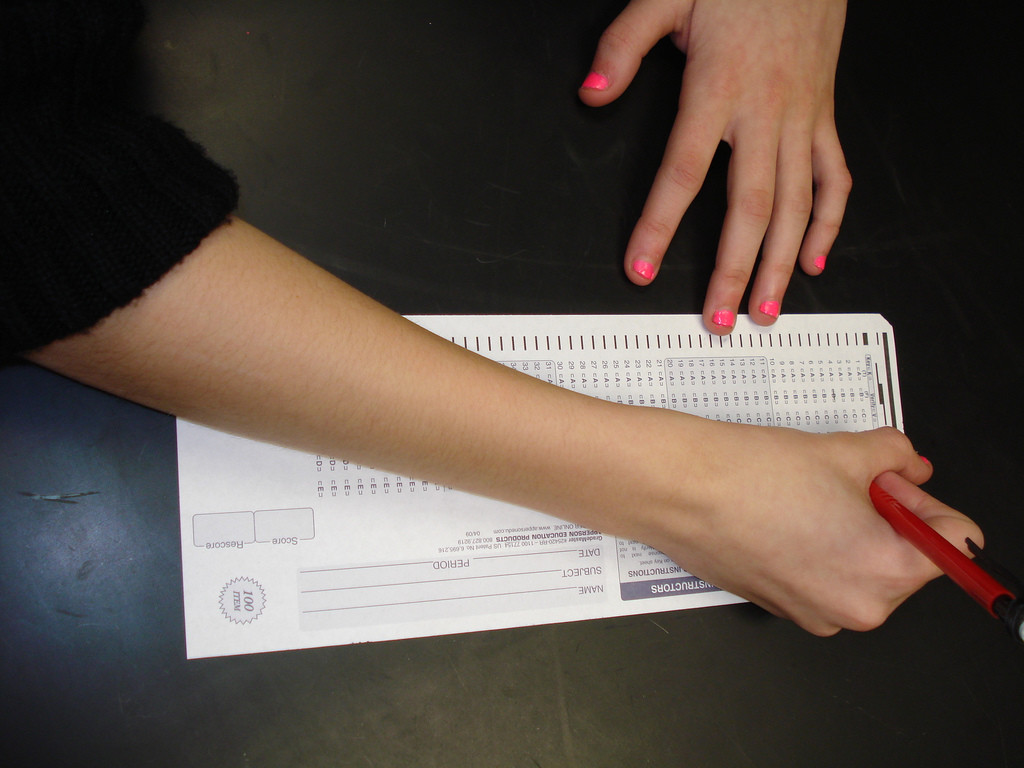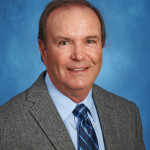Gail L. Bolt | Professor of Education
Bernard J. Badiali | Associate Professor of Education
On December 9, Congress passed the reauthorization of the Elementary and Secondary Education Act, called the Every Child Succeeds Act.
A replacement for the much criticized No Child Left Behind Act of 2001, the reauthorization gained support from groups as diverse as The National Alliance for Public Charter Schools, the National Education Association, the National Parent Teacher Association, The National School Boards Association, the National Governors Association and Fairtest, an organization that addresses issues related to fairness and accuracy in testing.
With such overwhelming support, it could well be argued that it must be a sound legislation. But, is it?
We have been elementary and secondary school teachers as well as professors and researchers of elementary education, teacher education and teacher development for more than 35 years. And we believe that despite its efforts to redress the problems caused by NCLB, ESSA contains at least one disturbing provision.
We are alarmed by the section of the law that allows states to authorize the establishment of alternative-track teacher education academies, with lower standards and accountabilty for teaching qualifications.
Teacher academies
The support for the ESSA has largely come from its reducing much of the heavy-handed federal oversight of education. States and local school districts can now make more decisions about how best to support student learning.
We are happy that the ESSA supports less testing. In addition, it emphasizes a “well-rounded education.” Students will study arts alongside the academic subjects that were favored under No Child Left Behind.
However, our concern is the inclusion in Title II of the ESSA of language which authorizes routes to teacher certification that attempt to fast-track the preparation of teachers for pre-kindergarten through 12th grade positions.
Nationwide, in order for graduates of teacher education programs based in colleges and universities to gain state certification as a teacher, the programs must follow state requirements such as required entrance and exit exams and the number of credit hours in specific subjects such as reading, math and special education.
In the new ESSA legislation, the envisioned fast-track academies will be exempt from states’ teacher certification requirements.
In other words, they do not have to meet the standards for accountability and accreditation required of university-based teacher education programs.
Kenneth Zeichner, a professor of teacher education at the University of Washington at Seattle, has described this as “promoting the growth of entrepreneurial teacher education programs.”
As Zeichner and another education researcher, César Peña-Sandoval, note, while most of the new ventures in public education, including already existing alternative certification programs, are nonprofits, they gain serious tax advantages from their public status. Such programs receive public funding, and contract out services to for-profit providers, which in many cases are associated with the financial backers of the venture.
Indeed, with the market size of American public education at nearly US$800 billion and legislation friendly to private investment in public education increasing, education is the new great field for entrepreneurial profit.
Teachers without adequate qualifications?
We find it troubling that the legislation allows states to use federal funding for the creation of academies and stipulates that its graduates will be recognized with the same state-issued certification as those who have completed a university-based teacher education program.
States may choose – but are not required – to use up to 2 percent of their education budget to support the academies.
But then, the legislation limits state oversight as well. For example, states will not be allowed to require those teaching at the academies to have experience, degrees or training in education, to hold advanced degrees or to conduct academic research.
This leaves the door open for academies to hire faculty that suit their religious, moral or philosophical values. Or for supporting profit-making ventures, which include promoting the use of commercially manufactured curriculum materials, which may not support student learning as compared to research-based methods.
What’s more, the academies are not required to obtain accreditation.
And what this means is that state departments of education, which hold credentialing authority for teachers, will not be able to mandate that the academies require a specific number of courses or types of coursework such as courses on the teaching of reading or mathematics.
Additionally, the academies do not have to have physical infrastructure, paving the way for entirely on-line teacher preparation programs.
Once someone graduates from an academy, according to the legislation, the certificate may be treated as the equivalent of a master’s degree in education for the purposes of hiring, compensation, retention and promotion. Here is what the act says.
Back to testing?
So why do we find the elimination of standards for teacher education in the ESSA so troubling?
We have two major concerns.
The first is the assumption in the new ESSA that if the teacher knows enough to pass a state-designated content exam in, for example, social studies, science, literature or math, then that teacher is prepared to teach the content. An understanding of how to teach and what is learned beyond testable content is ignored.
Content exams suggest that teacher candidates have the minimum level of knowledge to teach. Passing these tests, which is required in most states, is intended primarily to signal that candidates have a minimum level of knowledge and competency, but does not predict their future effectiveness in the classroom in teaching that content.
Teacher education programs therefore include a strong emphasis on developing pedagogic knowledge and a research-based understanding of student learning.
Pedagogical knowledge – how students learn or fail to learn and how that understanding must be incorporated in approaches to teaching – is well established.
It involves not only student learning of subject matter, but teaching in ways that support students to develop confidence in their own capacities to ask and answer questions in the world, as well as to to think and engage actively, creatively and critically.
However, such pedagogical knowledge is not required for graduates of alternative academies.
By way of “quality control,“ the legislation does require that the teacher candidate demonstrates that she or he is effective at boosting student achievement. The candidates must be placed in classrooms as teachers prior to the completion of their program. This does not require notification to parents of the teacher’s status.
What it may mean to boost student achievement is not specified in the law.
Our second concern is that raising student test scores will be the primary metric of this assessment.
If testing remains, as it has been under No Child Left Behind and Race to the Top, the primary measure of a quality education, then once again it is the students, their families, communities and ultimately the nation that will be saddled with the fallout of a narrow and alienating curriculum.
Who will be affected?
We are also deeply troubled by the prospect that if virtually unregulated teacher certification academies with little academic quality control are allowed to proliferate, the employers of their graduates will be either charter schools, many operating in high-poverty communities, or traditional public schools that lack the resources to be selective and competitive in hiring the best-qualified teachers.
The law itself describes its intention to prepare teachers to work in “high-needs” areas, which include both communities and subject or specialization areas experiencing teacher shortages.
High-poverty urban and rural schools are far more likely to be subject to teacher shortages than schools serving a wealthier population. These high-need schools are also most likely to be staffed by the less experienced, least effective teachers.
Once again, as often happens under the privately managed charter school model, underprepared teachers will end up in the poorest and neediest schools, thereby exacerbating the problem of inequitable educational outcomes for children living in poverty. Studies have shown that the student achievement gap widens when teacher qualifications are unequally allocated to students by race, income and location.
We believe that the provisions in the new law that have the potential to undermine teacher quality can and should be scrutinized before states begin their implementation. States do not have to elect to support these academies.
The American public can and should demand that our schools serve the civic good and the well-being of children and their communities by staffing schools with well-qualified teachers who are prepared to support all children as active, creative and critical thinkers.
![]() Read this story on The Conversation (March 25, 2016)
Read this story on The Conversation (March 25, 2016)



